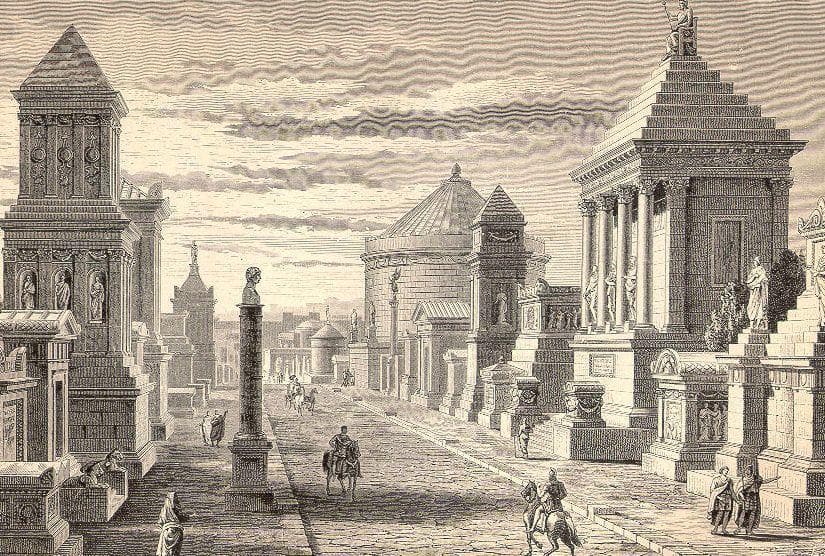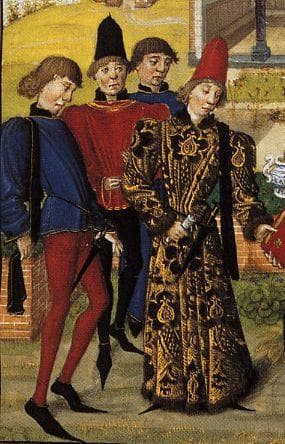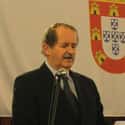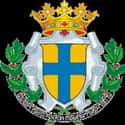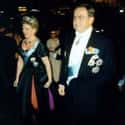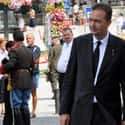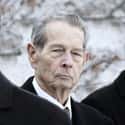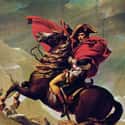-
(#8) Duarte Pio, Duke of Braganza
- Noble person
Duarte Pio is the heir to the defunct Portuguese throne. Originally exiled from his home country when he was born in 1945, the exile was revoked in 1950 and he has been living in the country ever since.
Pio served in the Portuguese Air Force as a helicopter pilot during the Portuguese Colonial War. Though he is not a politician, he has involved himself in many of the country's foreign and domestic affairs, including campaigning for the independence of former Portuguese colonies such as Timor-Leste, which became a sovereign nation in 1999.
For many years, Pio has been calling for a restoration of the monarchy so he can attempt to fix economic problems in Portugal, though he does not want to abolish the country's elected officials. He claims that Portugal was better off before they deposed their last monarch, Manuel II, in 1910.
-
(#10) Carlos, Duke of Parma
- Noble person
Carlos Hugo was a direct male descendant of Louis XIV. He was born Hugues Marie Sixte Robert Louis Jean Georges Benoît Michel, but in 1963 a French court renamed him simply Charles Hugues.
Inheriting a contested claim to Spain's throne that spawned three civil wars in the 19th century, Carlos worked hard to rally support behind his cause. He married Princess Irene of the Netherlands in 1964, a move that helped make him a more attractive candidate for Spanish rule (though the marriage caused a political crisis in the Netherlands).
However, when the fascist dictator Franco declared Juan Carlos de Bourbon King of Spain in 1969, Carlos changed his cause to a Spanish socialist movement. After his socialist movement lead to violence, Carlos abandoned his claim and went to teach at Harvard. Then, suddenly, in 2003, Carlos took up his claim to the Spanish throne once again and bestowed it to his son, Carlos Javier.
Carlos died in 2010 at the age of 80.
-
(#3) Constantine II of Greece
- Notable Figure
Constantine II is the former King of Greece, who ruled from 1964 until a coup ended the monarchy in 1974 in favor of a republic. He was forced to flee the country and went into almost five decades of exile.
During his long exile, Constantine socialized with Europe's royals past and present, including England's Queen Elizabeth, Prince Charles, Princess Diana, and Prince Philip, his cousin; Spain's King Juan Carlos and Queen Sofía, his sister; and Denmark's Queen Margrethe, his sister-in-law.
Constantine led a dramatic life, from barely escaping death at the hands of communist agents as an infant, to falling in love with his wife, the Danish princess Anne-Marie, when she was only 13. He was also an Olympic gold medalist in sailing. He survived two assassination attempts. When he and his family fled Greece in 1967, it was in a small plane he piloted himself.
"I had to borrow $300 from my valet to refuel the plane," he said, "and my brother-in-law [King Juan Carlos] had to send me clothes."
In 2015, Constantine was finally allowed to return to Greece; he now lives in the seaside town of Porto Heli.
-
(#7) Karl von Habsburg: Emperor of Austria
Karl von Habsburg is an Austrian politician and the grandson of the last Austrian emperor, Charles I. Before careers in politics and business investment, he was a game show host on Austrian TV.
Karl was born in exile in Germany, in 1961, as his family had been banished from their native Austria. His father Otto von Habsburg later renounced his claims to the Austrian throne as a condition of being allowed to return to his country.
Karl's full name is Archduke Karl of Austria, Royal Prince of Hungary, Bohemia, and Croatia; however, it is illegal to use royal titles in both Austria and Hungary, so he usually goes by either Karl von Habsburg or Karl Habsburg-Lothringen in those nations.
As a descendant of Archduke Franz Ferdinand, Karl has gone on record defending the old Austria-Hungary government against those who blame them for World War I. "It would be wrong to point the finger at one state," he said. -
(#9) King Michael: King of Romania
Michael was, in fact, the King of Romania, from 1927-1930 and again from 1940-1947. He dined with Hitler and Mussolini during World War II, and was later awarded medals by both President Truman and Joseph Stalin. He is also the great-great-grandson of Queen Victoria and the cousin of Queen Elizabeth.
In 1944, Michael ordered the arrest of the fascist dictator Ion Antonescu, and helped engineer Romania's switch from the Axis to the Allies, thus likely shortening the war.
Michael lost his throne for good and was forced into exile when his country fell under control of the Communist Party. At 94, he's the oldest surviving World War II-era head of state, and during his exile took jobs ranging from test pilot to running a chicken farm to stay afloat. During the era of the Warsaw Pact, Michael lived in Switzerland. When the Soviet Union fell, he refused to run for Romanian office and instead opted for the quiet life.
-
(#6) Prince Charles Napoleon: Emperor of France
Prince Charles Napoleon's great-great-grand-uncle was indeed Emperor Napoleon Bonaparte. Prince Charles is considered by the Bonapartists (a group that hopes to restore Napoleon's regime) as the rightful heir to the house of Bonaparte and thus France itself. His claim to this title was proven, in part, by a DNA sample taken from Napoleon I's beard.
However, Charles himself remains skeptical about his own claim to the throne of France. Because of Charles's republican political opinions, his father's will declared that Charles's son Jean-Christophe Napoleon was the rightful heir. As for Charles's views on the French government, he's gone on record saying he believes he's upholding Napoleon's own political stance when the general originally defended the French Republic.
New Random Displays Display All By Ranking
About This Tool
Before the birth of modern European civilization, the political model of the European countries only continued the tradition of ancient tribal political culture, and the monarchy had always been the mainstream political system in medieval Europe. With the development and transformation of society, after the First World War, most of the monarchy was overthrown due to war or revolution. Although many European countries still retain the royal family, these royals no longer have political rights.
By the 21st century, most countries in Europe are republics. The heads of state are elected, and many modern heirs to the historical thrones have become ordinary people. This model is unique and only suitable for European countries with long historical traditions. The random tool lists 12 modern royals of historical thrones that you did not know.
Our data comes from Ranker, If you want to participate in the ranking of items displayed on this page, please click here.

